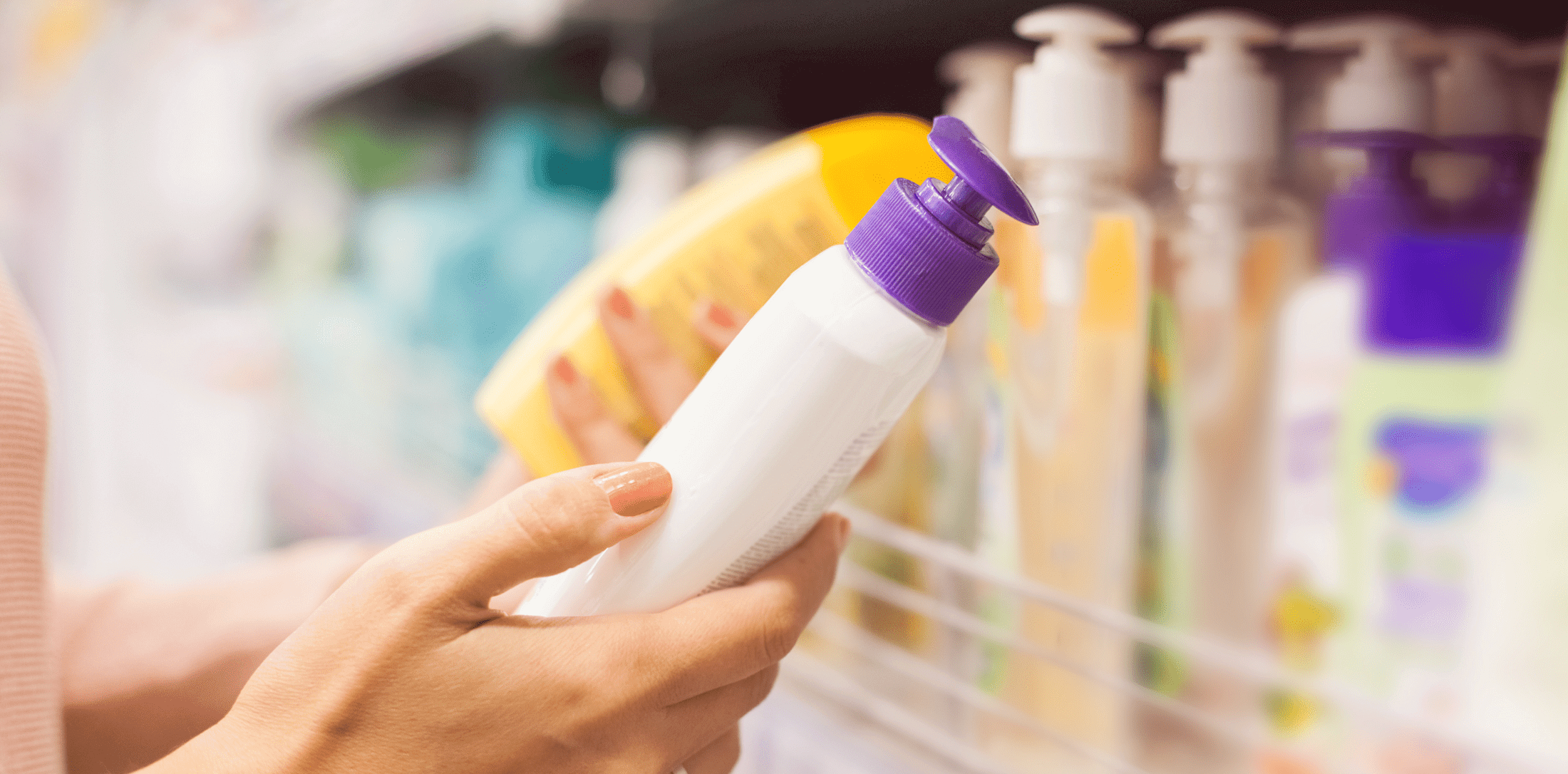The 2022 Modernization of Cosmetics Regulation Act (MoCRA) marked a huge regulation shift for the personal care industry. It also introduced a new role, the Responsible Person (RP), a requirement for companies marketing cosmetics in the U.S.
Together, facilities and Responsible Persons are accountable for overseeing compliance with all new MoCRA requirements. The role of RP may not be new to those trading internationally, but the change in U.S. cosmetics regulation has left many facilities scrambling to comply before FDA begins enforcement.
In this guide, we introduce the role of the Responsible Person under MoCRA and their obligations. We also offer an overview of cosmetics adverse event reporting processes, requirements, and deadlines to help you successfully comply with MoCRA regulations.
What Is a Responsible Person?
FDA’s update to MoCRA defines a Responsible Person as “the manufacturer, packer, or distributor of a cosmetics product whose name appears on the label of such cosmetic product in accordance with section 609(a) of the FD&C Act or section 4(a) of the Fair Packaging and Labeling Act.”
If you are the designated RP for your company, you now have a list of duties enforceable by FDA under MoCRA. These include:
- Cosmetic product listings
- Professional Use Labeling
- Fragrance allergen disclosures
- Safety Substantiation
- Adverse event receiving and record keeping
- Adverse event product labeling
- Serious adverse event reporting
A RP can be located anywhere in or outside of the United States. Your company can also hire a qualified authorized agent to manage certain MoCRA requirements such as adverse event reporting.
FDA vs EU Responsible Person
“Responsible Person” is a familiar term for those who market cosmetics in the EU. However, the EU defines an RP and its role differently to FDA.
According to Article 4 of Regulation EC No 1223/2009, a Responsible Person is “a legal or natural person” designated within the EU to assure the compliance of domestic, imported, and exported products.
Depending on the product and where it is marketed, An EU RP can be the manufacturer, importer, distributor, or a designated third party.
EU Responsible Persons also have different obligations than RPs under MoCRA, including:
- Collecting products’ EU Declaration of Conformity documentation (Formula Review, Cosmetic Product Safety Reports, safety information, labels, and claim reviews for the Product Information File (PIF)).
- Informing authorities of potential risks and working with market surveillance authorities to assure that brand owners remedy non-compliance with corrective measures.
Unlike FDA RPs, an EU RP must be located within the EU.
Learn more in our blog on FDA and EU cosmetics Responsible Persons.
Responsible Person Obligations
RPs have a growing list of responsibilities under MoCRA, ranging from product listings to serious adverse event reporting. Each of these duties comes with differing requirements and while some are currently being enforced, others have upcoming statutory deadlines.
Product Listings
Alongside MoCRA’s requirement for cosmetic facility registration and renewal every two years, cosmetics companies must list each marketed product and its ingredients with FDA.
They must also submit annual updates on any product listing.
Product listings must contain:
- Product name and cosmetic category
- Product ingredients by name, including fragrances, flavors, or colors
- Facility registration numbers of each facility that manufactures or processes cosmetic products
- RP contact information
- Product listing number (if previously assigned)
- Type of submission (initial, update to content, or abbreviated renewal)
Like cosmetic facility registration, product listings and updates should be submitted through FDA’s new portal, Cosmetics Direct in Structured Product Labeling (SPL) format.
While the statutory deadline for cosmetic product listings, December 29, 2023, has passed, FDA doesn’t intend to enforce this new requirement until July 1, 2024 to give facilities more time to comply.
Professional Use Labeling
Cosmetic products meant for interstate commerce that are intended for professional use only must now display a “professional use” label.
The label should include a clear, prominent statement that the product should be administered or used only by licensed professionals. MoCRA defines a “professional” as “an individual who is licensed by an official State authority to practice in the field of cosmetology, nail care, barbering, or esthetics.”
FDA has enforced professional use label requirements since December 29, 2023 with no compliance extension.
Fragrance Allergen Disclosure
MoCRA now requires that any ingredients considered allergens by FDA be listed and disclosed on the product label. Full details have not yet been shared, but the new guidance may follow the European Union’s approach to individual labeling of fragrance allergens.
FDA will propose a new rule for disclosing potential fragrance allergens by June 29, 2024, 18 months from the original enactment of MoCRA on December 29, 2022.
Safety Substantiation
A Responsible Person must assure and maintain documentation that supports the adequate safety substantiation of cosmetic products.
Products may be “adequately” substantiated through scientifically robust methods such as:
- Tests or studies
- Research
- Analyses
- Any other evidence or information that experts consider qualified to evaluate safety
FDA does not offer guidelines for or require any specific safety substantiation tests, analyses, or documentation. Instead, RPs must work with companies to determine what relevant data would best substantiate the safety of their products and document their proper use. Animal testing is not required to market a cosmetic product.
In the event of inspection, FDA may request access to your safety documentation along with any adverse event records or reports.
FDA has enforced all safety substantiation requirements since on December 29, 2023 with no compliance extension.
Voluntary Product Recall
RPs are responsible for voluntarily recalling products. If FDA determines that a cosmetic product may be adulterated or misbranded and cause serious harm to the public, they can issue a mandatory recall.
A cosmetic product is considered “adulterated” if:
- It bears or contains any poisonous or deleterious substance which may render it injurious to users under the conditions of use prescribed in the labeling.
- Its container is composed of any poisonous or deleterious substance which may render the contents injurious to health.
- It consists in whole or in part any filthy, putrid or decomposed substance.
- It has been prepared, packed or held under insanitary conditions whereby it may have become contaminated with filth.
- It contains a color additive which is unsafe or unapproved.
MoCRA adds to this definition to include the following:
- If it has been manufactured or processed under conditions that do not meet the good manufacturing practice requirements of FD&C Act Section 606 (GMPs).
A cosmetic product is considered “misbranded” if:
- Its labeling is false or misleading
- Lack of required information
- Conspicuousness and readability of required information
- Misleading packaging
- Improper packaging and labeling of color additives
- Deficiencies where the Poison Prevention Packaging Act requires special packaging
MoCRA adds to this definition to include the following:
- [Lack of] the information required under FD&C Act Section 609 (product label contact information for receiving adverse event reports)
Once FDA determines that a recall is necessary, they will contact the RP and give them the opportunity to cease production of a cosmetic product and order a voluntary recall.
If the RP chooses not to recall the product voluntarily, FDA can issue a mandatory recall, known as Mandatory Recall Authority, and RP must recall the product.
Cosmetics Adverse Events
Responsible Persons must now comply with MoCRA regulations for adverse event receiving, record keeping, product labeling, and serious adverse event reporting.
Learn more in our guide to adverse event requirements for responsible persons.
Adverse Event Contact Labeling and Receiving
An adverse event as “any health-related event associated with the use of a cosmetic product that is adverse” by the FD&C Act (Title 21).
Under MoCRA, all cosmetic products must now include the Responsible Person’s contact information on the product label. This provides a clear communication pathway for consumers to submit information about any adverse events.
Contact information may include a U.S. address, phone number, or electronic contact information such as a website address to help facilitate adverse event reporting. Cosmetics companies should display content information on the inner container and outside container of the product unless FDA specifies more flexible guidelines.
Responsible Persons have until December 29, 2024, to update product labels with contact information before FDA begins enforcement. FDA will provide further guidance about how RPs should display contact information on product labels.
Products that don’t meet this requirement will be considered misbranded by FDA and may be subject to detention and refusal.
Adverse Event Recordkeeping
FDA also requires that RP maintain records of any and all adverse events for a specified period. These records must be available in case any personal care products pose a potential threat to public health. In this event, FDA has the right to enforce detentions, refusals, and mandatory product recalls.
RPs must maintain records of all adverse events for a period of 6 years. Small businesses that act as distributors of cosmetics products only need to maintain records of all adverse events for 3 years.
Under MoCRA, FDA also retains the right to conduct inspections of cosmetics facilities and imported products. During an inspection, FDA can request copies of adverse event records.
FDA has enforced this requirement since December 29, 2023.
Read more about Responsible Person requirements for adverse events in our recent guide for serious adverse events.
Serious Adverse Event Reporting
Finally, while RPs must maintain records of all adverse events, FDA requires that they submit reports of specific major adverse events or Serious Adverse Events.
While an adverse event covers any negative health events due to cosmetic products, MoCRA defines a Serious Adverse Event as an adverse event that results in:
- Death or a life-threatening experience
- Inpatient hospitalization or an infection
- A persistent or significant disability or incapacity
- A congenital anomaly or birth defect
- Significant disfigurement (serious and persistent rashes, second- or third-degree burns, significant hair loss, or persistent or significant alteration of appearance not intended under conditions of use)
An adverse event also qualifies as serious if it requires “based on reasonable medical judgment, a medical or surgical intervention” to prevent one of the outcomes described above.
To learn more, read our recent guide on serious adverse events reporting for Responsible Persons.
Meeting MoCRA Requirements for Responsible Persons With Registrar Corp
Registrar Corp has worked with thousands of cosmetic companies to maintain MoCRA compliance and bring safe products to market. Our regulatory compliance services and software help you meet the requirements of a Responsible Person and include:
- Cosmetic product listings. FDA’s new Cosmetics Direct platform requires you to submit cosmetic product listings in SPL format. We make submitting and updating your annual product listings quick and easy.
- Cosmetic label review. Stay on top of new MoCRA regulations for cosmetic labels. Our team of regulatory specialists will review your product labels and ingredients list and offer recommendations for better FDA compliance.
- Adverse Event Management. Turnkey software solution that offers branded electronic contact to streamline customer disclosures and an organized database to develop, review, and store adverse event reports.
- Cosmetics regulatory online training. Our library of self-paced, 100% online courses are designed by regulatory and industry experts. Learn how to comply with MoCRA regulations such as product listing, adverse event reporting, GMPs, and more.
Gain and maintain FDA compliance as a Responsible Person for your cosmetics facility. Still have questions? Reach out to us to learn more about how we can help today.








